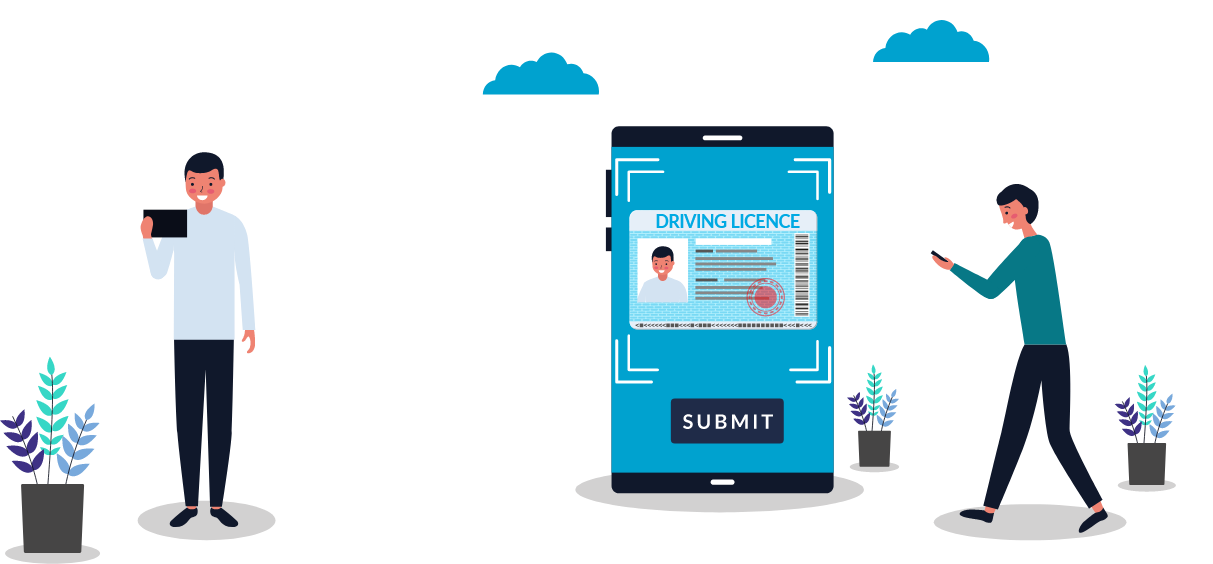A guide to identity verification

What is Identity Verification?
Identity verification is a process which helps to ensure that an individual is who they say they are. Organisations of all sizes across many different sectors verify the identity of their customers, employees, and users to protect themselves from fraud, create trust and comply with local legislative requirements. Many different parts of an organisation can use identity checking procedures for different purposes. For example, in an estate agency, HR may use identity checks to confirm an employee’s Right to Work status, while the lettings team introduce an identity checking process during Right to Rent checks and the sales team will carry out an identity check to comply with anti-money laundering regulations. Identity verification can be accomplished through different means, such as a manual inspection of an identity document, image-based online identity document verification, biometric identity checks using selfies and face-matching technology or checking against known records such as address records and credit history.
Why should an organisation have an identity checking process?
Confirming the identity of the people who you are dealing with remains critical to protect your organisation from fraud and to remain compliant with the latest legislation.
Identity fraud continues to grow. CIFAS estimate that it now costs the UK an estimated £1.8 billion each year and is one of the most common case types reported by its industry members – accounting for 64% of all filings in 2023 with more than 237,000 identity fraud cases recorded.
What’s more, our experience has shown a year-on-year growth in the volume of fake identity documents seen by our customers, including some high-quality fraudulent examples and a growing number of genuine documents presented by ‘imposters’.
Being able to verify identity quickly and reliably is a crucial first step to protect your organisation from fraud and financial risk, and ensure your compliance with the latest guidance, including anti-money laundering and Right to Work measures.
Why consider electronic Identity Verification?
Since most organisations don’t employ a resident identity fraud expert, choosing a digital identity check that uses the most up-to-date technology and data is the best way to confidently stay one step ahead of fraudsters.
When you’re making identity checks, you may be presented with a wide range of different documents by your employees or customers, for example passports, identity cards or driving licences, issued across the globe. It can be a challenge to differentiate between genuine and fraudulent documents, especially if the forgeries are of high-quality. What’s more, many organisations are relying on visual ID checks, perhaps from a dispersed team without significant document training, or indeed you’re only interacting with your customers online and not meeting them face-to-face at all.
How your organisation chooses to carry out identity checks will vary depending on your processes, internal skills and resources and the perceived level of risk in your sector.
Identity verification is also especially important to regulated businesses that provide money services or deal in high-value items such as property or art. They may particularly benefit from biometric identity checks as a first step in anti-money laundering checks and counter fraud protection. We are working with a growing number of online retailers who require identity validation as first line of defence against fraudulent online renters or purchasers.
How can an identity document checking service help?
The latest Home Office guidance recognises the important role that Identification Document Verification Technology (IDVTs) can play in supporting an organisation’s identity document check process and identifying fraudulent documentation to prevent it being used to:
- obtain employment or accommodation in the UK, as part of a Right to Work or Right to Rent checks
- work in vulnerable sectors, e.g. where an individual requires a DBS check
- obtain access to controlled premises or services, such as secure areas or licensed premises
- apply for public services
- be charged for receiving NHS treatment
- obtain financial services
- receive other goods and services
Automated identity check technology can take a front-line role in detecting forged identity documents across HR departments, on-boarding and compliance teams in the public and private sectors and help them to:
- Save time: identity document validation technology speeds up identity verification with results returned within minutes.
- Reduce risk: electronic identity verification reduces the risk of employing illegal workers or falling victim to money-laundering or fraud.
- Build trust: an identity checking service should give you greater confidence in the identity of prospective applicants, users of services, customers or employees.
How do online identity checks from TrustID work?
TrustID provide identity verification services, designed to help organisations across different industries to protect themselves from fraud and comply with the latest regulations. Our online identity verification platform, TrustID Cloud, will assess the authenticity of global identity documents using a unique combination of machine learning and human expertise. We will also identify whether the document has been recorded as lost, stolen or compromised. Users can upload images of identity documents from anywhere and the service is sold on a pay-per-check model, with no long-term contract and can scale according to your business need.
On top of robust document validation, you can add additional services to reduce the burden of a range of compliance, including AML and Right to Work checks, or introduce higher-level verification such as face biometrics and address verification for additional security.
If you’re considering an identity checking provider, take a look at our blog below which highlights the aspects of TrustID’s service which stands out.
6 Reasons to Choose Identity Validation Services From TrustID
Want to find out more?
If you’d like to discuss how our services could support you, please get in touch. We’d be happy to arrange an online demo.
Sign up to receive updates
Receive notifications from TrustID direct to your inbox. Simply fill out your email address in the form below.
Want to find out more?
We’d be really happy to chat through your requirements and offer advice on the best service for your business.
Tel: 0118 466 0822 or email us.
Request a callback


